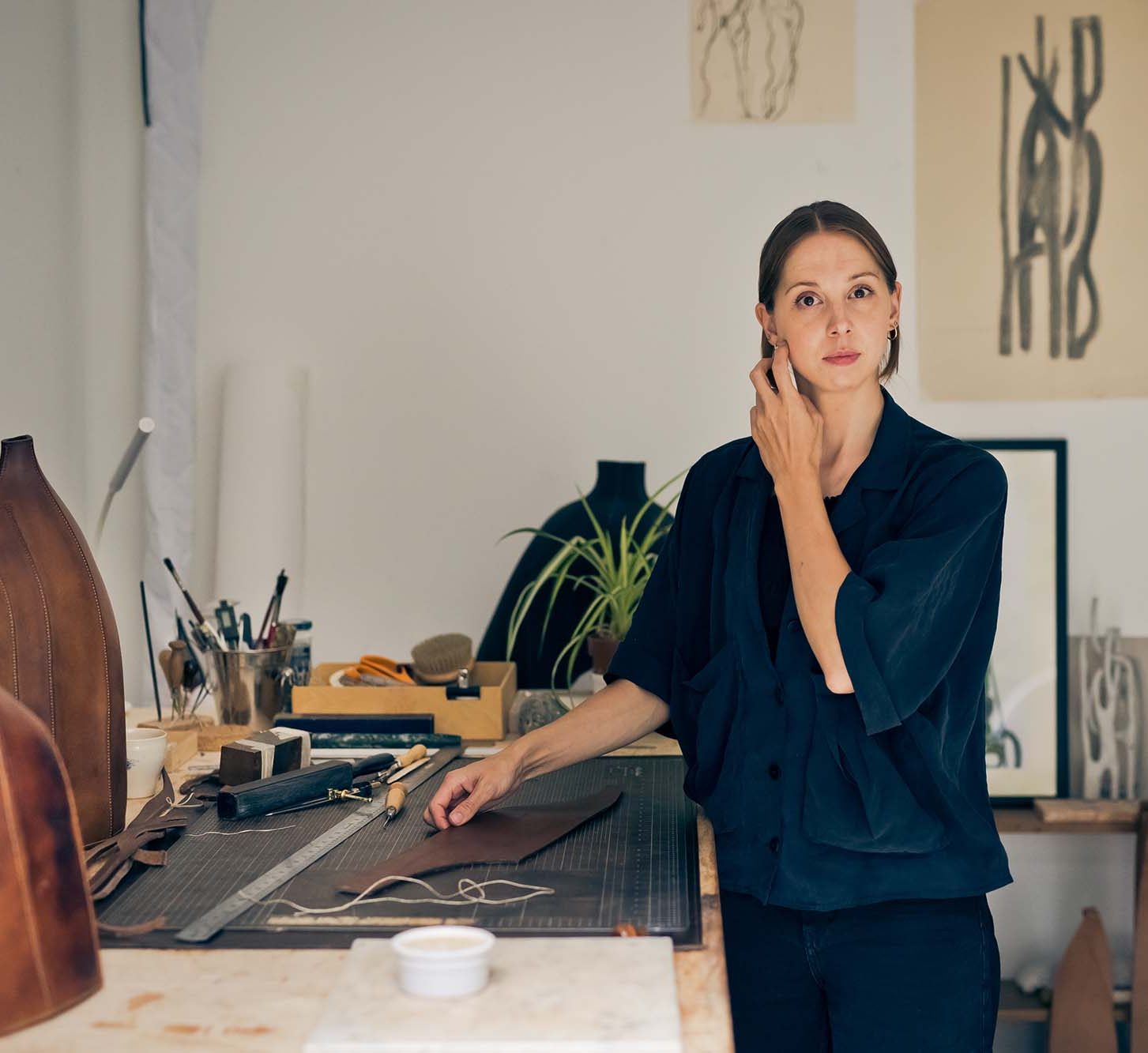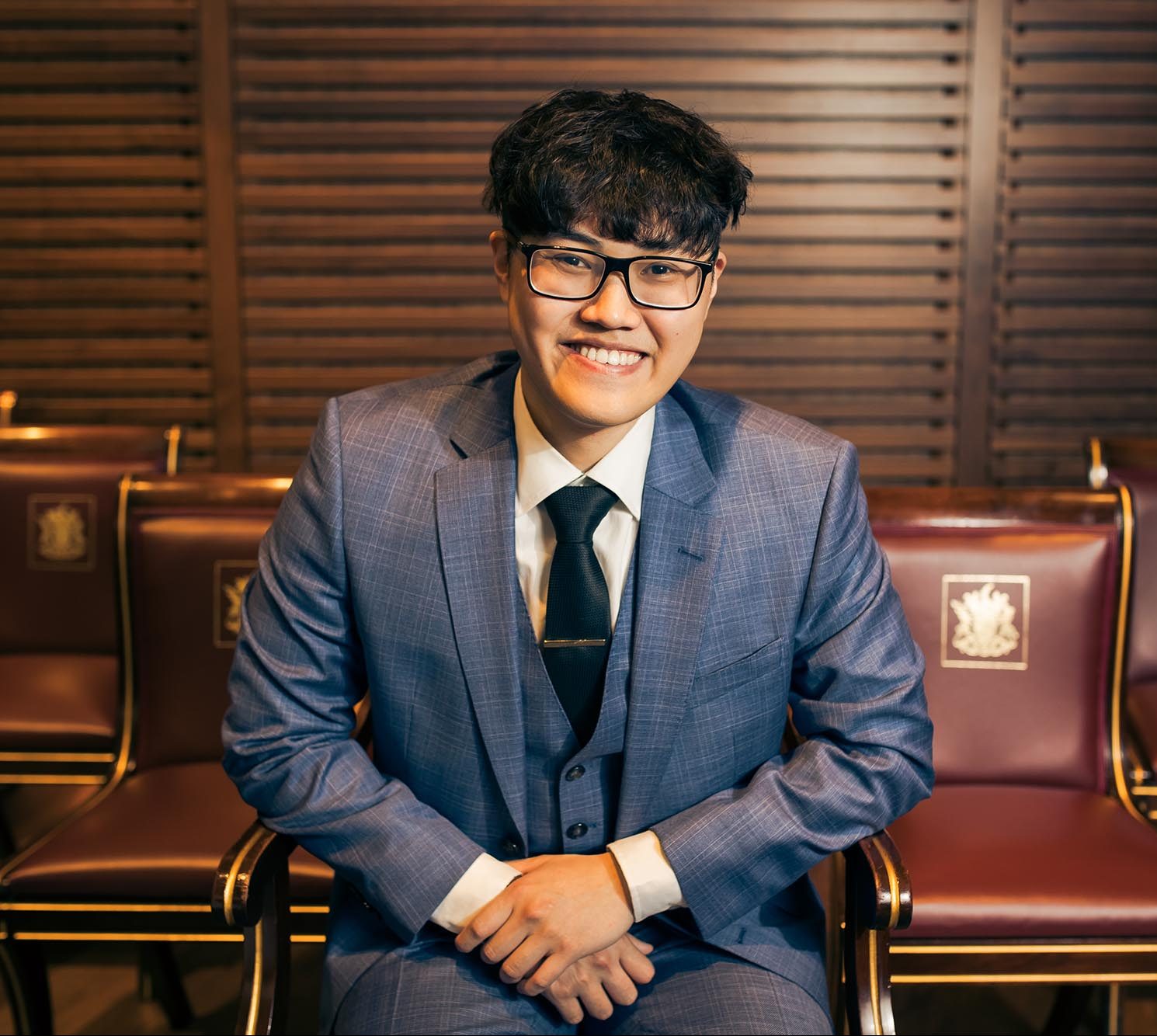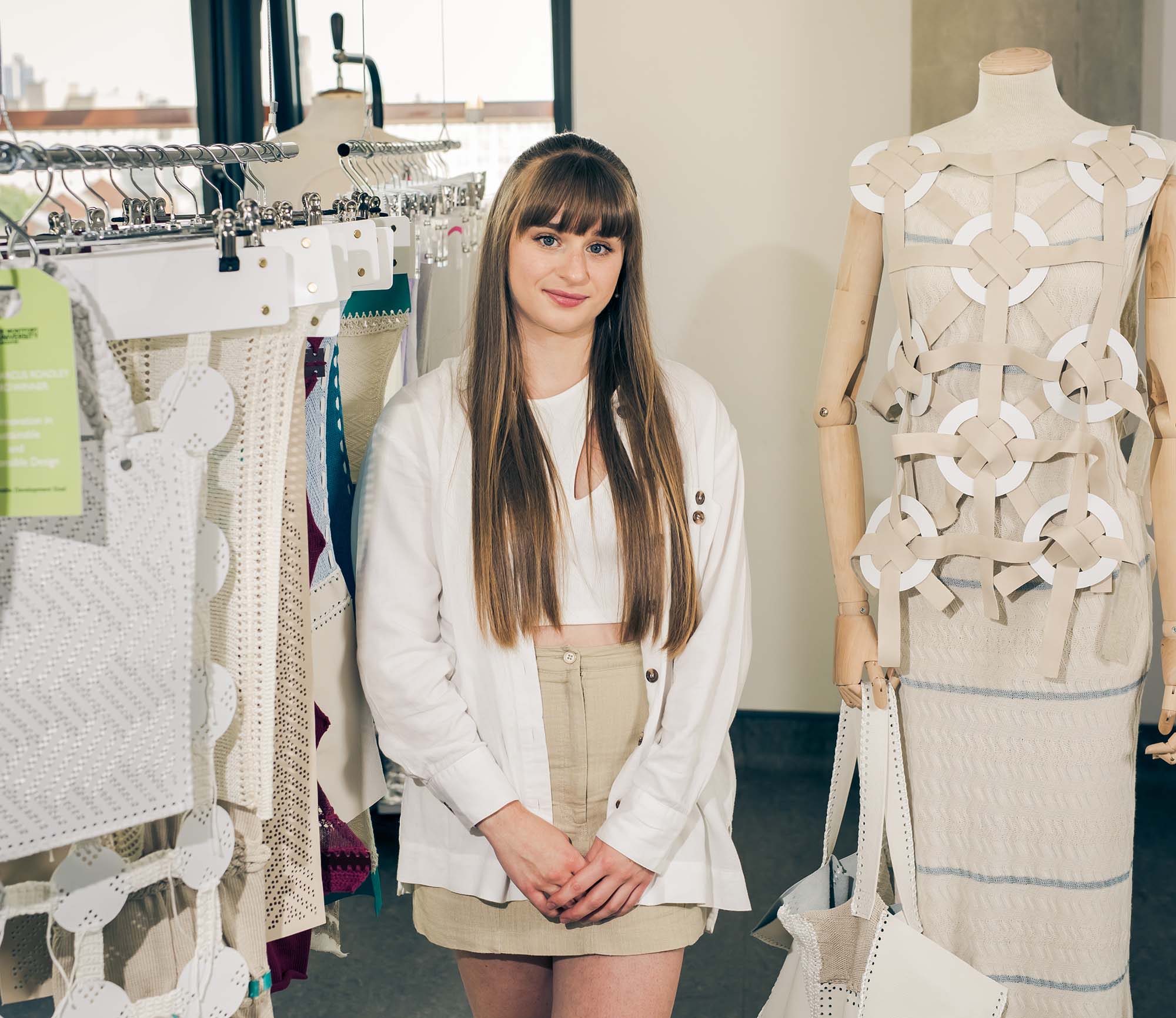
Words by Elisa Anniss
Photography by Paul Read
With its leather education grants the Leathersellers’ Foundation supports people of all ages and at various stages in their careers in the footwear industry. It could be a shoe veteran such as Rosa Fior, with heaps of experience of pivoting to a different part of the industry, or someone like Joyce Addai- Davis who is passionate about facing up to waste, sharing her knowledge and making the process of shoemaking as progressive and as sustainable as possible. Then, there are those at the very start of their journey such as 22-year-old De Montfort University undergraduate Arjya Jyotirmay Bhattacharya. With all three individuals the UK’s diverse offering of creative talent takes centre stage, underpinned, and empowered by, the use of leather.
Bhattacharya, the DMU student, confesses to having a long-held love of sketching that was subsequently matched by a passion for trainers. He recalls that at the age of eight he was extremely fond of a pair of red patent leather high tops by the Chinese brand Red Sun, bought for him by his father. Fast forward to today and he favours brands that have a global resonance such as Asics and New Balance “because of their intricate patterns and superior comfort.”
“I started drawing as a kid and was always told that I had a natural talent for sketching and 3D perception,” he says. For him, sketching was about self-expression, a way of channelling feelings. Fortunately, the student also has encouraging parents, who rubber-stamped his decision to combine his two favourite things, shoes and art — which is how Kolkata-born Bhattacharya found his way to Leicester, England.
When he signed up for the Footwear Design BA in 2022 he was under the erroneous impression that the course revolved around illustrations of shoes. However, as he progressed on the course the level of specialisation required dawned upon him, as did the need for total dedication. “It cannot be done without a genuine love for footwear,” he notes. He was told about the grant opportunity by his university tutor, and says that the money given to him by the Leathersellers has helped him to pay his rent and focus on his studies instead of stressing about finances.
 Arjya Jyotirmay Bhattacharya
Arjya Jyotirmay Bhattacharya
DMU aims to stimulate its students by setting them projects and competitions with leading brands. The Dr Martens project was memorable. “It made me push myself in terms of being an actual footwear designer and I got to showcase my skills on a higher level,” Bhattacharya explains.
For the project he used elements from his everyday life as inspiration to create a new Dr Martens silhouette. “It was one of the first projects where I truly pushed myself in terms of construction and design and I was extremely happy with it.” In his second year he was a finalist in the Bespoke Classic Shoe Making module and was also shortlisted as a finalist in a university project with Gravity Sketch and Adidas. As a result he was invited to Germany to present his work to the Vice President of Adidas Originals. Bhattacharya says that when he graduates next summer, long term he hopes to work at a sports brand as a footwear designer/developer and then eventually have his own line of footwear. “I’m eyeing Europe or the US after graduation but let’s see where life takes me.”
 Dr Martens project design concept
Dr Martens project design concept
Since graduating from London’s prestigious Royal College of Art in August 2023 with a Footwear MA, 38-year-old Joyce Addai-Davis has become a fixture working full time as a fashion research lecturer. It’s a role that allows her to implement findings in her dissertation that focused on waste and landfill by incorporating them into the curriculum. Indeed, she has produced a compelling video evidencing landfill waste mountains in Ghana entitled The Chronicles Of ‘Bola’ (Waste) Girl, which is currently gaining traction. But more of her discoveries in Ghana later.
Addai-Davis graduated from Chelsea College of Art in 2008 with a BA in which she specialised in woven textiles. During her time as an undergraduate she spent a term studying at Polimoda in Florence. It was here, she says, that she developed “a taste for leather.” Otherwise, her route into footwear has been a circuitous one, including time spent in Chiang Rai in Thailand learning about weaving and ethicalpractices.
In the past she has also worked in ready-to-wear, learning pattern cutting under a London-based couturier, which led to her becoming a costume designer creating outfits for singer-songwriter Nao’s 2019 Grammy-nominated Saturn album. When the pandemic came along it prompted a change in direction. In 2021, the Leathersellers supported her with a grant to resume studying, this time for her MA at the Royal College of Art.
However, shortly after she started at the RCA she experienced a eureka moment. “I was on holiday in Ghana at Chorkor Beach near Accra. While there, I started to document all the waste. This included a sparkling New Look shoe that still had the price tag on it” she says, adding that as New Look doesn’t operate in Ghana this piece of waste must have been shipped in from elsewhere. She quotes a saying that has been attributed to Mahatma Gandhi, ‘You must be the change you want to see in the world’, and adds “I can’t just complete a Master’s and continue adding to the problem; if I want to see true change, it first starts with me.” This experience prompted her to switch from Fashion to Footwear at the RCA.

“My goal is to create purposeful fashion items with minimal reliance on new materials or, in some cases, using digital counterparts instead. My artistic inspiration stems from the heroic narrative of Yaa Asantewaa, an 18thcentury Ghanaian warrior who resisted British colonialism. I channel her spirit into combating waste colonialism.”
She says that funding from the Leathersellers has helped her on her journey “one hundred percent,” not just with making her way and procuring materials, but also allowing her to learn the traditional craft of footwear by shadowing Iliaz Ilali from Ilias Little Shoe Box in London’s Wood Green. As for her creations, she says that her time at the RCA reinforced the thinking that aesthetics come first. “The word ‘upcycling’ conjures up a ‘woe is me’ feel. I prefer describing the process as ‘beautification of waste’ as it doesn’t end up tarnishing the product.” And when it comes to what she creates, it isn’t at all obvious that her pieces are sewn together from waste.
Rosa Fior’s endeavours demonstrate that it’s never too late to learn new skills. She describes herself in industry parlance as “a lifelong shoe dog.” Thus far, she’s had an illustrious shoe design career. It started in London at Cordwainers’ College, followed by a stint in Florence, after which she had a long career working for leading labels such as Paul Smith, Karen Millen and lastly Penelope Chilvers, which she left in 2022 in order to set up a slow fashion business Antigone.
“After many years in the industry, I saw that opportunities for women after the age of 50 were severely limited so I felt that I needed to create my own brand to secure my future,” she explains. “With Brexit and Covid making it even harder to import goods, I wanted to see if I could buck the trend and bring small-scale shoemaking back to Hackney, where I started my career at Cordwainers.”
She continues, “Working with Penelope Chilvers, who has a love for quality and artisan craft, chimed well with me as I have always been inspired by footwear that I have come across on my travels.” One such example is the authentic espardenyes [espadrilles] that she now imports from a small family workshop in Spain and sells on the Antigone website. “I had been wearing them for years, and when I met the owner I asked him whether I could bring them to the UK for the first time. The uppers are all plant-based and the soles are made from upcycled car tyres. I have always been passionate about sustainability and artisan craft skills, and concerned about overconsumption and waste,” she adds.
 Rosa Fior
Rosa Fior
With Antigone came the impetus to sharpen her leather skills and deepen her shoemaking knowledge. “I have spent years collaborating with and watching highly-trained craftspeople shoemaking in Italy, Spain and Portugal, but my hands-on skills were rather rusty. The simple sandals I make evolved as an easier launch product. I can make them from my small home workshop without too much in the way of tools or equipment. However, our unreliable weather means that I need to diversify into trans-seasonal and closed-toe lasted styles. I wanted to refresh my skills and explore what else I could add to the collection.”
This led Fior to enrol on the year-long Access to HE Diploma in Shoemaking at Capel Manor College. “Being awarded the Leathersellers’ education grant was the deciding factor in helping me to attend the course,” she says. “The practical focus of the course has been brilliant, I have rekindled my lifelong love affair with shoemaking and am
learning lots of new skills, such as hand-welting with James Ducker. I had never tried it before. I have found it incredibly hard; I seem to always be slicing my fingers or banging my thumbnails with a hammer, but seeing a good-looking shoe emerge is very satisfying. It has also been a wonderful experience to be taught Foot Anatomy by expert orthopaedic shoemaker Bill Bird.”
The course is time-intensive and involves attendance three days per week plus academic projects. Added to this, she supports herself by undertaking ad-hoc freelance projects for Penelope Chilvers and others whenever she can fit them in. Then, of course, there are all the various roles she has at Antigone. “As a one-woman band I have to pull on all my experience from working with other brands to do everything from the shoemaking, the website, the marketing, the photography, the social media and even the modelling,” she concludes.
From young talent like Bhattacharya to a shoe stalwart like Fior, all three Leathersellers’ grant recipients impress with their resilience and fresh ideas. And although the shoe landscape has never been tougher, embarking on specialist further education, research and curating a broader set of skills certainly helps them to navigate it. No doubt when it comes to their respective shoe journeys, they will all go forward by continuing to consider obstacles as opportunities.
—
The Foundation’s support for makers aims to encourage and facilitate a pipeline of individuals skilled in the use of leather for the future. Our partnership with the RCA helps to identify students undertaking Masters-level courses who utilise leather and are in need of financial support. Direct student grants are offered to individuals who can demonstrate a passion for the material alongside financial barriers that would prevent them from fulfilling their potential. Having to work alongside studying, to alleviate financial pressure, can be particularly detrimental to a practical skills-based course, which could mean missing out on studio time and teaching.
READ MORE

Dream Maker
In her sleep, Frances Pinnock finds inspiration for her figurative leather sculptures.

Leathersellers’ Scholarships at Colfe's School
Celebrating the long-term success of the Leathersellers’ Scholarships at Colfe’s School.

Fashioning History
For an inspired project at Leicester’s De Montfort University, students of “Artifacts Live” are drawing on the lessons of historic leathercraft to create the designs of the future.